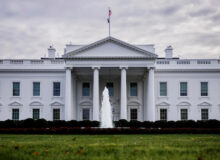(Jan. 18) Sometimes, the incisive thoughts, the thoughts showing some originalism, just don’t come, but a writer wants to say something anyway, even if there’s no great new insight. So it is today for me, as I want to pay tribute to Martin Luther King Jr.
What most strikes me about King, apart from his worthy goal (equality before the law) and near-saintly tactics (nonviolent protest), is his nearly otherworldly courage. When I wrote last year about an incident in which his imprisonment played a huge role in the outcome of the 1960 presidential election, my focus on the political fallout gave short shrift to the reality of King’s bravery during the whole situation. Suffice it to say that when he was not just imprisoned for driving with an expired license — really! — but spirited away in the dead of night to a rural detention facility full of violent white criminals, there was good reason to fear he might be murdered while in custody.
Yet by all accounts, King kept his cool, trusting that release and redemption would come.

For four years, by then, he already had been a national figure arousing the severest passions. But in reading accounts of his civil rights work, one realizes that from that 1960 incident forward, King probably never went a day free from worries that he might be attacked or killed. He also had reason to fear that his family might be at risk. Still, he persisted.
One wonders what that feels like. One wonders what the stress is like. One wonders what constant reason for fear means, especially for someone not militarily trained. Of course, we all know the tragic end that eventually befell him, but what’s remarkable is that he clearly had a sense that such an end awaited. Still, he persisted.
And he persisted in a cause that was profoundly moral, using tactics that were profoundly moral, too….
[The rest of the column is here.]






